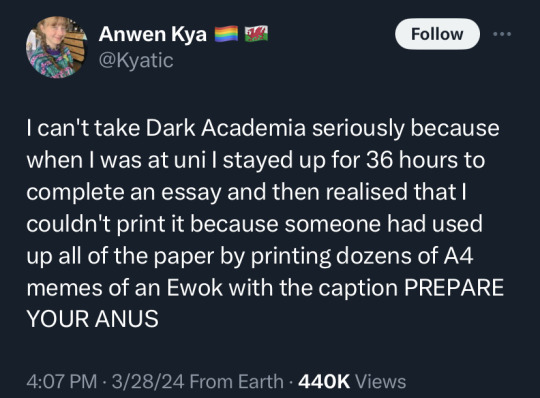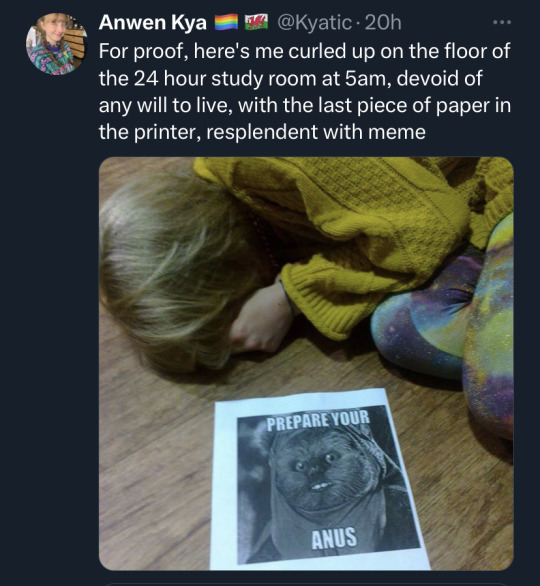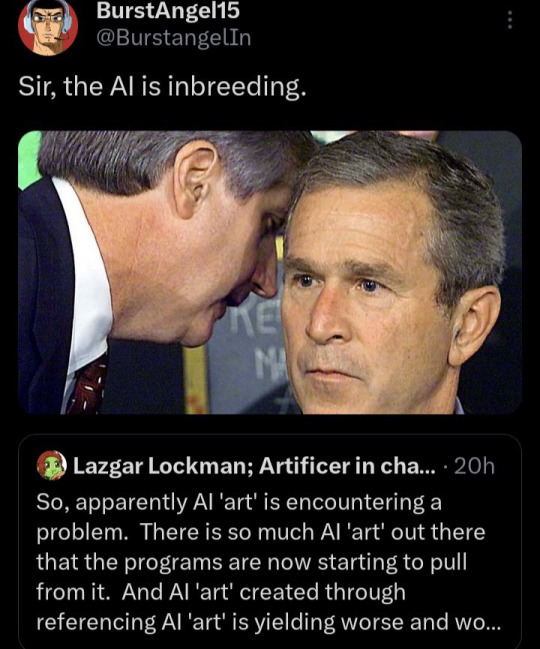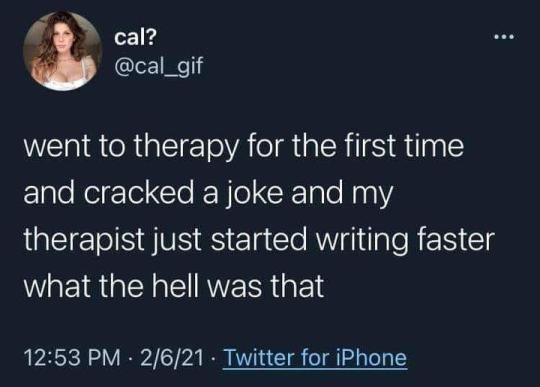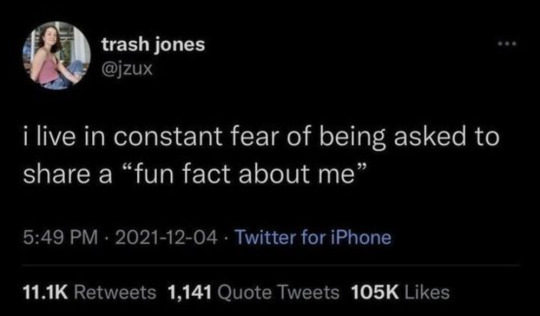Text
The way that we learn about Helen Keller in school is an absolute outrage. We read “The Miracle Worker”- the miracle worker referring to her teacher; she’s not even the title character in her own story. The narrative about disabled people that we are comfortable with follows this format- “overcoming” disability. Disabled people as children.
Helen Keller as an adult, though? She was a radical socialist, a fierce disability advocate, and a suffragette. There’s no reason she should not be considered a feminist icon, btw, and the fact that she isn’t is pure ableism- while other white feminists of that time were blatent racists, she was speaking out against Woodrew Wilson because of his vehement racism. She supported woman’s suffrage and birth control. She was an anti-war speaker. She was an initial donor to the NAACP. She spoke out about the causes of blindness- often disease caused by poverty and poor working conditions. She was so brave and outspoken that the FBI had a file on her because of all the trouble she caused.
Yet when we talk about her, it’s either the boring, inspiration porn story of her as a child and her heroic teacher, or as the punchline of ableist, misogynistic jokes. It’s not just offensive, it’s downright disgusting.
294K notes
·
View notes
Text
I don’t choose when to listen to the muses, they summon me and I dont dare disobey.
1 note
·
View note
Text
The devastating difference between how much time it takes to write something vs how fast people read it lol
34K notes
·
View notes
Text
I am once again thinking about digging holes

It's so fucked up that digging a bunch of holes works so well at reversing desertification

I hate that so much discourse into fighting climate change is talking about bioenginerring a special kind of seaweed that removes microplastics or whatever other venture-capital-viable startup idea when we have known for forever about shit like digging crescent shaped holes to catch rainwater and turning barren land hospitable
73K notes
·
View notes
Text
ultimately the cheesecake factory menu fails to tell a queer narrative
57K notes
·
View notes
Text
Just a bunch of Useful websites - Updated for 2023
Removed/checked all links to make sure everything is working (03/03/23). Hope they help!
Sejda - Free online PDF editor.
Supercook - Have ingredients but no idea what to make? Put them in here and it'll give you recipe ideas.
Still Tasty - Trying the above but unsure about whether that sauce in the fridge is still edible? Check here first.
Archive.ph - Paywall bypass. Like 12ft below but appears to work far better and across more sites in my testing. I'd recommend trying this one first as I had more success with it.
12ft – Hate paywalls? Try this site out.
Where Is This - Want to know where a picture was taken, this site can help.
TOS/DR - Terms of service, didn't read. Gives you a summary of terms of service plus gives each site a privacy rating.
OneLook - Reverse dictionary for when you know the description of the word but can't for the life of you remember the actual word.
My Abandonware - Brilliant site for free, legal games. Has games from 1978 up to present day across pc and console. You'll be surprised by some of the games on there, some absolute gems.
Project Gutenberg – Always ends up on these type of lists and for very good reason. All works that are copyright free in one place.
Ninite – New PC? Install all of your programs in one go with no bloat or unnecessary crap.
PatchMyPC - Alternative to ninite with over 300 app options to keep upto date. Free for home users.
Unchecky – Tired of software trying to install additional unwanted programs? This will stop it completely by unchecking the necessary boxes when you install.
Sci-Hub – Research papers galore! Check here before shelling out money. And if it’s not here, try the next link in our list.
LibGen – Lots of free PDFs relate primarily to the sciences.
Zotero – A free and easy to use program to collect, organize, cite and share research.
Car Complaints – Buying a used car? Check out what other owners of the same model have to say about it first.
CamelCamelCamel – Check the historical prices of items on Amazon and set alerts for when prices drop.
Have I Been Pawned – Still the king when it comes to checking if your online accounts have been released in a data breach. Also able to sign up for email alerts if you’ve ever a victim of a breach.
I Have No TV - A collection of documentaries for you to while away the time. Completely free.
Radio Garden – Think Google Earth but wherever you zoom, you get the radio station of that place.
Just The Recipe – Paste in the url and get just the recipe as a result. No life story or adverts.
Tineye – An Amazing reverse image search tool.
My 90s TV – Simulates 90’s TV using YouTube videos. Also has My80sTV, My70sTV, My60sTV and for the younger ones out there, My00sTV. Lose yourself in nostalgia.
Foto Forensics – Free image analysis tools.
Old Games Download – A repository of games from the 90’s and early 2000’s. Get your fix of nostalgia here.
Online OCR – Convert pictures of text into actual text and output it in the format you need.
Remove Background – An amazingly quick and accurate way to remove backgrounds from your pictures.
Twoseven – Allows you to sync videos from providers such as Netflix, Youtube, Disney+ etc and watch them with your friends. Ad free and also has the ability to do real time video and text chat.
Terms of Service, Didn’t Read – Get a quick summary of Terms of service plus a privacy rating.
Coolors – Struggling to get a good combination of colors? This site will generate color palettes for you.
This To That – Need to glue two things together? This’ll help.
Photopea – A free online alternative to Adobe Photoshop. Does everything in your browser.
BitWarden – Free open source password manager.
Just Beam It - Peer to peer file transfer. Drop the file in on one end, click create link and send to whoever. Leave your pc on that page while they download. Because of how it works there are no file limits. It's genuinely amazing. Best file transfer system I have ever used.
Atlas Obscura – Travelling to a new place? Find out the hidden treasures you should go to with Atlas Obscura.
ID Ransomware – Ever get ransomware on your computer? Use this to see if the virus infecting your pc has been cracked yet or not. Potentially saving you money. You can also sign up for email notifications if your particular problem hasn’t been cracked yet.
Way Back Machine – The Internet Archive is a non-profit library of millions of free books, movies, software, music, websites and loads more.
Rome2Rio – Directions from anywhere to anywhere by bus, train, plane, car and ferry.
Splitter – Seperate different audio tracks audio. Allowing you to split out music from the words for example.
myNoise – Gives you beautiful noises to match your mood. Increase your productivity, calm down and need help sleeping? All here for you.
DeepL – Best language translation tool on the web.
Forvo – Alternatively, if you need to hear a local speaking a word, this is the site for you.
For even more useful sites, there is an expanded list that can be found here.
76K notes
·
View notes
Text
Somebody explain to me an art process that doesn’t involve spending all your prep time making Pinterest boards, then doing everything all at once over the course of one four to forty hour shift while chanting “I want to die”, running out of hot glue sticks, and picking up seven new skills that’ll never be useful again along with two that will, then making up shit the next morning to explain how it all fits together like I’m actually the reincarnated Michelangelo here to grace the world with one last marvel before I succumb to heart failure like the overworked creative martyr that i am
I’ll wait
#artist#artwork#traditional art#art crime#existential crisis#meme humor#funny#memes#humor#school#original#send help#please help#pls help#help#art block#art#AYIII#im freaking the fuck out#art school
12 notes
·
View notes
Text
Disability Tropes: The disabling change of heart

When a character in a story becomes disabled, they'll sometimes experience a trope that I like to call "the disabling change of heart". This is when the character goes through a massive change in their outlook, their personality, their goals or even roll in the story, specifically because they became (or are about to become) physically disabled. Sometimes, this will be in relatively small ways: the happy-go-lucky comedic relief character might become bitter, angry and jaded after getting into an accident that caused a spinal injury, or the severally depressed and nihilistic character might suddenly start acting more cheerful and hopeful, stating that loosing their leg has "put things into perspective and showed them what really matters". In other cases though, the impact is much larger, the heroic character you've been hearing about looses an arm thanks to the main character's actions, causing them to become consumed with anger and self-loathing which they take out on everyone else, eventually becoming an antagonist as they seek revenge for what the main character did to them. The morally grey or even villainous character is injured by their own scheme, giving themselves a permanent disability in the process, which prompts a change of heart and leads them to turn their lives around and become better people, maybe even deciding to team up with the heroes.
Now, having a character go through a personality and goal change due to a major life event, such as becoming physically disabled, isn't inherently bad. A lot of writers are told to tie major shifts in your character's development to major life events, because realistically, something like becoming newly disabled will at least impact how you view the world around you. I very frequently talk about how if I didn't loose my legs, I would have become a vastly different person, but the issues with this trope depends on how it's used and the reasons behind these developments, and whether or not the change suits the character in question.
Before we get into things, I would like to specify that in this post, I'm only going to be talking about how this trope is used with physical disabilities and other easily visible forms of disability. It does show up with characters who develop disabilities under the mentally ill and neurodivergent umbrellas, and is actually a bit more common than what I'm talking about today, but the specific ways its utilised are so different that it's more or less a separate trope, and one that deserves much more attention than I could give it here as this is already going to be a pretty long post. So for today, I'm keeping to it's use with physical and visible disabilities, and we'll talk about how this trope is used with neurodivergence and mental illness another day.
The main thing you need to be mindful of is ensuring that you, as an author, are not including your ingrained biases about disability into the reasoning behind the change. Let's look at one of the examples from before, an evil character who, after loosing their arm (because it's almost always loosing an arm for some reason) becomes a villain and wants revenge against the main character. In a story like this example, the character who became an amputee often views this new disability as something that has ruined their life. It's something that has caused them to suffer, and they want to make the main character (or whoever has "wronged" them) suffer like they did. Stories like this example portray disability as something that is not just horrible, but life-destroying, especially with villains who become all-consumed by the misery this disability has brought them. Many stories that utilise this version of the trope also often perpetuate the idea that if you become disabled, you'll have to give up all the things you love and your goals, even when this wouldn't necessarily be true for the character in question.
Let's say your character was a knight, and the main character cut off their arm in a training accident. obviously you can't be a knight with only one arm because you can't fight anymore, so they left their order. Now this character has become a villain and has found power that "makes up" for their disability, perhaps magic or some other force that doesn't exist in the real world, and are back to get revenge on the character for ruining their lives. Here's the thing though, the loss of a limb, or at least, the loss of an arm specifically, often isn't the career ender people think it is, even back then. In fact, there are many historical records of real amputees continuing to serve as knights and other similar military roles after loosing an arm or at the very least, continuing to fight in other ways. One such example was Götz of the Iron Hand, a mercenary knight who lost his arm to a cannon. Götz had fought as part of the Roman empire's military in 1498, but shortly after left to form his own mercenary company. He lost his hand in 1504 and continued his career as a mercenary with the help of an iron prosthetic capable of holding his sword and the reigns of his horse, among many other things such as writing, for another 40 years. Götz wasn't unique in this though, several suits of armour from the same time period have been found with integrated prosthetic hands, though the names of their owners are unknown. There was also Oruç Reis (aka Aruj Barbarossa), A privateer admiral who served the Ottoman Empire in and around the Mediterranean who lost his left hand - earning him one of many nicknames: Silver-Hand, thanks to the colour of his prosthetic. Oruç, like Götz, continued his career for several more years until he was eventually killed in 1518.
My point in bringing this up, is to highlight how important it is to double check that the reason your character's whole motivation for turning to villainy, isn't just based on your ideas about what a disabled person can or can not do. Actually double check it, research it, especially if it's important for your plot.
Even in the cases where the disability in question actually would stop someone from being able to do something, the incorrect assumptions can still occur and cause issues in different ways. For example, a character in a more modern setting who looses their arm due to an accident the main character was responsible for while serving in the military would be discharged, ruining the character's plan to become a general some day. This absolutely would be devastating for a character like that, and they realistically could struggle to adjust, both in terms of getting used to their disability and finding new goals for their life. They may well feel anger at the main character, however, if you are portraying just living with a disability, in the case of this example, living with an amputation as inherently "suffering" for no other reason than they are disabled, it is still perpetuating those really negative ideas about disability. I've said this a few times in other posts, but villains who are evil or even just antagonists purely because they're disabled or are trying to avoid becoming disabled is a trope all its own and one that is best avoided if you yourself aren't disabled, as even outside of spreading these negative ideas about life with a disability, it's just an overdone and overused trope.
But what about when this trope goes in the other direction? when you have an antagonistic or even just morally grey character who becomes disabled and this is the catalyst that turns them into a good guy?
For the longest time, I knew I usually disliked this version of the trope too, but I couldn't put my finger on why. With disability being the reason someone became a villain, the underlying reason it's there is often able to be boiled down to "I, the writer, think being disabled would be terrible and life like that is inherently suffering, so this character is angry about it," which is obviously an issue (the "inherently suffering" bit, not the anger). However, when a character becomes good due to becoming disabled, the reasoning is usually more along the lines of, "this is a big change in a character's life that has caused them to reconsider and revaluate things" (or at least, that's what I thought). This isn't bad, nor is it necessarily unrealistic. Hell, as I already said, I do consider my disability to be a catalyst that made me into who I am today. I also know plenty of people who, after becoming disabled later in life, did have a big change in how they viewed themselves and the world, and who consider themselves better people since becoming disabled. It's far, far from a universal experience, mind you, but it does happen. So why did this version of the trope still not sit right with me?
Well, I think there's a few reasons for it. The first being that there's a tendency for non-disabled people to think real disabled people are just incapable of evil deeds, both in the sense that they aren't physically capable of doing them (which is bad and not even always true for the reasons we already discussed), but also in the sense that there's this idea that disabled people are, for some reason, inherently more "good" and "innocent" - As if breaking your back or loosing a limb causes all evil and impure thoughts to be purged from the body. This is a result of many folks viewing disabled people as child-like, and thus attributing child-like traits (such as innocence) to them, even subconsciously. This is an incredibly common issue and something disability rights organisations are constantly pushing back against, as this mentality can cause a lot of unnecessary barriers for us. With how often I and many other disabled people are subjected to infantilization, I would be honestly shocked if it wasn't at least partially responsible for people thinking becoming disabled is a good reason to kick off a redemption arc.
This infantilization isn't unique to physically disabled people by the way, in fact it's way, way, more commonly directed at people with intellectual and developmental disabilities - or at least, people are more open about it, but as I already mentioned, how that is reflected in tropes like The Disabling Change of Heart is vastly different and deserves a post of it's own.
That's mostly just speculation on my part though, since that infantilising mindset does show up a lot in media, but not usually as part of this trope specifically.
However, it's not the only reason I wasn't a fan of it. When the disabling change of heart is used to fuel redemption arcs, I think, once again, that the disability itself being credited with causing the change directly is another factor. When this happens, it's usually because "it put things into perspective for me and showed me what really mattered."
This sounds better than our previous example on the surface, but stories that use this logic are often still portraying disability as an inherently bad and tragic thing, something so bad, in fact, that it makes all the other (legitimate) issues they thought were massive before seem so small by comparison. This is a type of inspiration porn: content made to make non-disabled people feel inspired or just better about their own situation. It's the mentality of "well my life is bad, but it could be worse, at least I'm not disabled like that!"
In a fictional story, this might look like an athlete character who dreamed of making it big so they could be famous and get out of poverty. They were a dick to anyone who got in their way but only because they were worried about not being able to make rent if they don't constantly win. One day though, they overworked themselves and got into a car accident on the way home because they were too tired, and now they're in a wheelchair and can no longer walk, which is (supposedly) absolutely tragic and way worse than anything else they were already going through. But they end up becoming a better person because it has put things into perspective for them. Yeah they were struggling to make ends meet, but at least they weren't disabled! Now that they are, they know they shouldn't have cared so much, because money doesn't matter when compared to not being able to walk, right?
As well as portraying disability in a negative light, these kinds of stories dismiss and diminish the other struggles or challenges the character is experiencing, placing the status of "not disabled" above all else.
There's also the fact that, when a lot of real people say their disabilities had positive impacts on their lives, they don't usually mean the disability itself is directly responsible for the change. There's exceptions of course but for myself personally, and most of the people I know who say they are better people because of/since becoming disabled, the disability has been more of a neutral catalyst than the actual cause of positive change. Meaning, it opened the door to allow those changes to happen, but it wasn't the direct cause. For me personally, becoming physically disabled at a young age didn't make me a nice person like people expect, I was still a little judgemental asshole for a lot of my childhood. However, because I was disabled, I had to travel a lot, initially because I needed medical treatment that my local hospital wasn't equip to provide, and later, because I started competing in disability sports. because of both of those things, I met people I never would have otherwise who made me reconsider what I'd been taught on a wide range of subjects, and made me question where those beliefs had come from in the first place. When I say my disability played a part in who I became, it wasn't because my disability itself change me, but it helped me meet people who were positive influences on me and my life. but when creatives make characters who experience arcs like this, they ignore this, again, defaulting to the "this was a bad thing that just put all my other problems into perspective" reasoning.
Some iterations of this trope also use disability as a kind of "karmic punishment" where the disability is portrayed as a rightfully deserved punishment for an evil character's deeds - usually something relating to the disability they acquired but not always. An example might look like an evil tyrant who punishes the rebels they captured by cutting off their hands. Eventually, this catches up with him, maybe the friend or a child of one of the rebels is able to capture the tyrant and cuts his hands off as payback so that he gets a taste of his own medicine, a taste of the suffering he imposed on others. Now facing at least one of the same realities of the people he subjugated, he realises the error of his ways. With some pressure from the main characters, he has a change of heart and surrenders himself, steps down to let someone else take his place, or perhaps he decides to start changing policies to be more in-line with these new morals until some other character usurps him, becoming an even bigger threat than the previous former tyrant.
Once again, stories that use a disability like this are still portraying the disability as an overall inherently bad thing, but there's the added layer at play in this example. The thing is, there are a lot of people in real-life who actually believe disability is a punishment from God. I remember one time when I was over in the US, an older lady came and sat down on the seat beside me on the bus and started asking me about my disability and specifically, how I became disabled. This isn't an unusual interaction, it happens fairly regularly whenever I use public transport, but on this particular day, the conversation suddenly shifted when I told her I became disabled when I was very young. This woman, despite the bus-driver's best efforts to get her to stop, ended up lecturing me for an hour and a half (during which time I couldn't move due to how my wheelchair was held in place) about how my disability was punishment from God for my parent's sins. She then tried to convince me to attend her church, claiming they would be able to heal me. And the thing is, this isn't an uncommon experience.
A lot of disabled people are targeted by cults using this same method: they'll convince people their disabilities are a punishment, make them believe they deserved it, that they just weren't good enough, but don't worry, if you repent and come to our specific church we can heal you. There was even a case in Australia recently that uncovered a cult called Universal Medicine, who taught that disabled people were reincarnations of evil people, and that being disabled in this life was their punishment, as well as that parents who have disabled children were being punished for other sinful behaviours. They were found to be operating a disability care service named Fabic that was being paid for by the NDIS, a subsection of the Australian government funded healthcare system that specifically aids disabled Australians by paying for and subsidising treatments, technologies (such as mobility aids) and other services relating to their disability. Fabic was found to be stealing excessive amounts of funding from their disabled clients under the guise of therapies and carer services, but was not actually helping their clients at all. Whether it's just taking advantage of them to get their money, or actually using this logic as a justification to mistreat them, this mentality of "disability is a punishment" actually gets real disabled people hurt or worse, and so seeing it come up in media, even if there is no ill-intent, can be very distressing and uncomfortable for disabled audiences.
So with all this being said, is the disabling change of heart a trope you should avoid in all it's forms and versions? No, but it does need to be handled with extreme care. I do think it should be avoided as a reason for a character becoming evil for the most part. If that really can't be avoided in your story though, at the very least, ensure that you foreshadow the change. Your happy little ray of sunshine, embodiment of sweetness and innocence type character probably isn't going to turn murderous and want revenge for an accident for example. A character who is likely to be driven to that kind of extreme of wanting revenge for their disability, so much so that they become a villain, probably already had at least a few traits that would predispose them to that line of thinking already, before becoming disabled. As for when it goes in the other direction, and you have a character becoming a good guy, avoid using the reasoning that "the disability put things into perspective for me". Instead, if you must use this version of the trope, use the character's new disability as the reason they encountered other people and situations that challenged their views, things they wouldn't have encountered otherwise. No matter the reason though, be very careful to avoid inspiration porn, and as always, try to find a sensitivity reader to give your story a once-over, just to make sure something didn't slip under your radar.
[Thumbnail ID: An illustrated image showing the same elf character twice. The picture of her on the left shows her laughing evilly, two tiny horns protruding through her brown hair. She is wearing a black dress and red shoes. On the right shows her in a yellow dress, sitting in a bright pink wheelchair with her head held eye and her eyes closed. The horns have been replaced with a glowing halo. In the centre is text that reads: "Disability Tropes: The disabling change of heart." /End ID]
521 notes
·
View notes
Text
here are some sleeping beauty plot points/general details that i love and i would love to see more discussion around

the story team did such an incredible job with fleshing out aurora while still making her feel true to the mythos from which she was derived. in every novelization i've ever read that predates the disney film, she's only ever given one line of dialogue (something like: "what is that thing that spins so merrily?") before falling asleep. disney took that same princess and successfully expanded her into a living, breathing dynamic human who is filled with everything- ethos, pathos, everything, but is also authentic to her origins. they also did a genius job at creating a basis for why love is so revered in this tale. true love conquers all, we're told, and it's indeed what keeps aurora safe from maleficent for all these years, as it's the one thing the evil fairy can't understand. yet, the fact that the princess grew up surrounded by the love from the three fairies, which instills that care in her heart, along with the fact that she grows up in isolation, so connected to the universe around her and allowing her to be introspective enough to observe the animals about her and draw a connection to the human condition and that of the consistencies of nature is so...deep and profound and develops her and makes her an evergreen character that will always represent people, for as long as we're around, because aurora's struggle is one that speaks to everyone. she isn't just some "lovesick princess" but a character that's growing up and longs to be able to find her soul's mate and to express the love in her heart in a universe where she was socially excluded and deprived of others outside of her three guardians. as humans are tribal creatures, social inclusion is one of the main pillars of wellbeing. so to take aurora, who is already an innately romantic person, and to deprive her of that just gives all the more reason why the kiss of true love really would revive her. she isn't just some princess who grows to be fifteen or sixteen, pricks her finger, and then is awakened by a prince she never meets. she is someone who was raised in love, grows up and wants to become a woman and share that love and express it with someone else. when she finds it, it's suddenly stripped from her and she's induced into a magic slumber that's meant to symbolize her transformation from girl to woman. then, she's awakened by the same love she'd thought she lost and it's just...the structure of it is genius and incredible and they retain all of the qualities about her in the fairytale and storytelling devices but they develop it so much further and round her out so well but still maintain a reverence to her source material instead of condemning it or outright changing it and i just LOVE
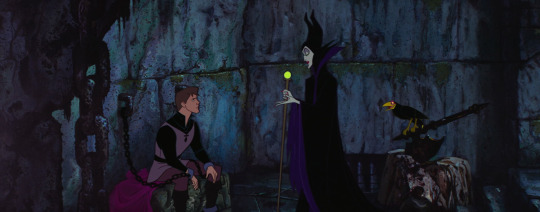
i don't think enough people realized that, it wasn't until maleficent visited prince phillip in the dungeon and showed him the vision of aurora in slumber repose that he knew that aurora and briar rose were one in the same!!! like this is the moment it all clicked for him and it gave him the drive and determination to slay the dragon in her honor. he realized the woman he loved and the princess he had been betrothed to were both one and that's so important and it's just such a plot twist that, again, was so genius of the writers. it proves to us that he loves her enough to leave the kingdom for her and risk damning the princess he had been betrothed to to the curse she was under and he'd take her as she is, even if it were a peasant, but also that his love is so steadfast and true that he'd defeat a dragon for her. 10/10 and it sooo runs along the vein of the lyric "visions are seldom all they seem." this is a plot twist done RIGHT but with so much sophistication that it tends to fly under most everyone's radar because it isn't like loud
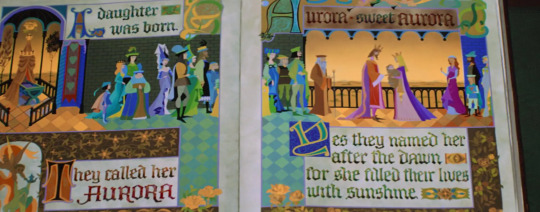
something i love about the original princess movies is how the female characters are forever in the forefront, and the fact that this film opens with the celebration of the birth of a female child is something that's so special! instead of having to think about how female children weren't celebrated in that time, or it was a disappointment she hadn't been a son, or something of the like, the fact that the spotlight is on their daughter and the opening of the film continues this matriarchy, where all in the land praise this female birth, before the fairies are introduced as their most "honored and exalted excellencies." we need to see more worlds like this instead of pixar films where there's like not a single main female character lol
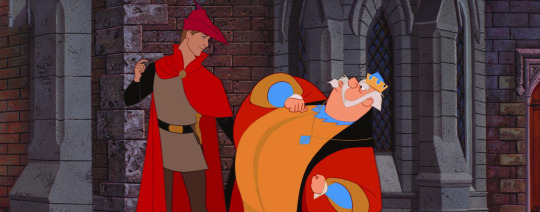
THE FACT THAT PHILLIP WAS WILLING TO GIVE UP THE THRONE AND THE KINGDOM "for some nobody" and told his dad flat out to his face without hesitating makes me love him soooo much?? he loves aurora for who she is, not just because she was a princess to whom he had been betrothed to his entire life, and this proves how genuine his love is. it also paints how progressive and open-minded phillip was, seeming to be the first that would ever break the tradition of princes marrying princesses and opening up his country for a new type of culture and reign. love me a freak like that

one of the biggest facets to aurora's character, and something that further develops her relationship to phillip, is how differently she reacts to her guardians when told of the betrothal. where phillip already knows, and is aware of the king and queen and how his duty is to marry their princess daughter, aurora is just finding out that she has living parents for the first time and the future of a nation rests on her shoulders. she discovers she's to be married to a prince and must give up her true love forever. again, before i hear anything about "she just met this man for two minutes in the woods, why is she crying," this is a fairytale with magic that's meant to be archetypical. in the narrative of the film, and in the universe of this world, phillip is her true love- and this is confirmed when it is his kiss that awakens her from the curse. so to leave the one true love who was meant for you, when that's all you ever wanted in the isolation you were raised in, to accept your duty and responsibility over parents you didn't even know you had and to assume the obligations of a nation you aren't even prepared for...it's astounding. aurora does everything right, she even leaves love behind for the good of her people and puts everyone above her own personal desires, and yet people still criticize her and say she's dependent on a man and all she cares about is love. meanwhile, phillip never receives any hate, and he's literally willing to give up the throne and the kingdom and start a war between two countries for the girl "he just met in the woods for two minutes" but he's one of the most beloved princes...it really just makes me think about how misogynistic our society still is, without even realizing it. aurora literally couldn't have done anything better, by our modern standards, but people still condemn her just because? this is definitely a discussion piece i want to hear more about and, in general, i think it would behoof us all to understand why aurora has been so demeaned culturally as a character when her actions, in and of themselves, are exactly what we say we want and would appeal to modern sensibilities

this is a slight sidenote but i always was tickled by merryweather proclaiming, if she had it her way, maleficent would be turned into a "fat old hop-toad." i always felt like this was a nod to the original tale from which this movie was based on, where a magical frog tells the queen that her wish to be with child shall soon be granted and that it, just generally, was a very clever easter egg/allusion

in this film, they have enough action and movement to appease the more restless demographic/traditionally "masculine" crowd, but i love how the basis of maleficent's defeat lies still in the femininity of the three good fairies. it's these elderly women that save phillip from the dungeon and arm him, not just with weapons that will kill another being and are predicated upon violence, but with symbolic weapons that are laced with truth and virtue. i think it really reminds us all how transformative these values are and how, in arming ourselves with them, we'll alone be able to navigate the road to true love (whether that be familial, platonic, or romantic love) which will be "barred by many more dangers" and how it enables us to have a sense of autonomy where we'll be able to overcome anything that's thrown our way while still retaining the core of who we are
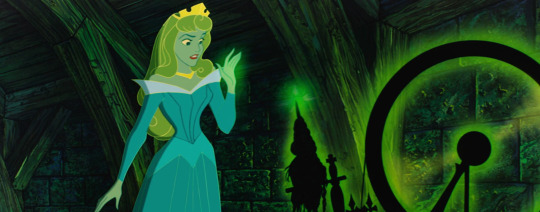
i wrote about this moment previously, but to piggyback off of what i wrote about phillip just above...i love how aurora is the most competent human in this world? much has been said about how the plot of sleeping beauty is essentially the fairy worlds dueling with one another and, in that, many of the mortals are somewhat...inept, to put it for lack of a better term. king stefan is unable to protect his daughter with the burning of the spinning wheels, even with all the power he harnesses within his kingdom, and the fairies are quick to see his folly. prince phillip would still be rotting in the prison had the fairies not interjected, and he would be burned to a crisp had they not sprung a final chant of magic upon his, already, enchanted sword. yet, maleficent has to hypnotize aurora for the princess to even succumb to her plan and, even then, aurora is temporarily able to snap out of the magic hypnosis she's put under. i don't think people realize how powerful that is? yes, i understand it's a minor moment, but the hesitation and the ability to counter magic while remaining totally unarmed is something that reminds me why aurora is our main character, despite what anyone else might say.
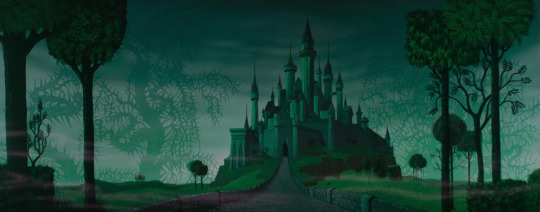
going along with what i said above, while many are quick to point out aurora's lack of screentime, the film begins with her birth, the plot is sprung forth with every character wondering what they could do to protect her, then when she pricks her finger upon the spinning wheel, she and the entire kingdom are put to sleep. it isn't until she wakes up, that the entire kingdom does, too. she holds the key to this entire universe in a persephone like way and i just love how important it is in the narrative of the film to wake her up. she isn't just this beautiful creature who's valuable because she's pretty, because if that was the case, her being a lovely figure posed to perfection in her slumbering mode would be enough...but the people of her universe value her so much more when she's alive and active and being her own person, that it ensues a fairy war, practically. she's also involved in every single plot, even if she isn't physically present. this is her movie and no one can take that away from her. but, just to restate, the fact that there's so much emphasis in aurora being alive and well is something that's so important

so, it's kind of a given at this point that every princess can sing, but i think the role that music plays in sleeping beauty is the most meaningful and well done? sleeping beauty makes much to do about its classical score and it skillfully combines realistic characters and storylines (like the fairies not knowing how to cook and clean, phillip being captured with no way out, the kings toasting to the impending nuptials of their offspring before getting into a quarrel centered around a misunderstanding) with the fantastical world of fantasy and opera. by giving aurora the gift of song, the narrative is creating a framework that explains her relationship to her singing voice in a way that's even more profound than that of ariel's connection with her singing. it explains why aurora sings more than she speaks and ties in perfectly with the thematic style of the operatic presence in sleeping beauty, which is that in the opera, instead of speaking about it, you sing.
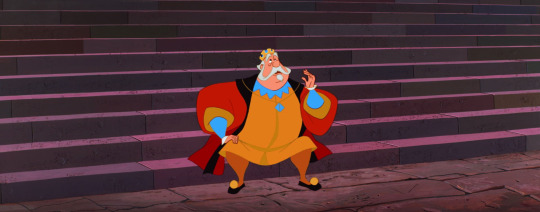
OK but this scene of hubert's/his general plotline and character motivation that results from this is genuinely perhaps the best comedy disney's ever done? hubert is coming off of declaring war upon his best friend stefan, because he misunderstood stefan's caring for his own daughter as a snub against hubert's son. after challenging aurora's father to a duel, they quickly make up, before hubert hears phillip has arrived and rushes off to greet his son. there, the news is broken that phillip is actually in love with a peasant and that he plans to renounce the throne- which will actually cause a war- so that he can be with his beloved. hubert is convinced phillip is joking, especially as he happens to meet this mystery maiden on the date that aurora is set to come home- the most anticipated date for these past sixteen years in the kingdom- and his son is set to be a central figure in the celebration for the princess's homecoming! before he can reason with phillip, his son escapes, leaving hubert to be the one to break the news to stefan. heavy-hearted, as hubert tries to tell stefan, he keeps being interrupted by trumpets and the musical notes that are meant to accompany the princess in her debut to her country. then the fairies literally put hubert to sleep when he finally gets a chance to explain it to stefan and, when they're awoken from this fog like slumber, the first vision that greets hubert is that of his son and the princess??? the same son who said he had no interest in aurora, but was set to marry the peasant maiden. the whole thing concludes in a very charming "all's well that ends well" but i still think the whole "how am i ever going to tell stefan" dilemma, while continually being interrupted, and this king who declared war in 2 seconds flat and minced no words in being so short-tempered was suddenly at a loss for words and so hesitant and fumbling and nervous about this news his son sprung on him lol

one of the most haunting sequences in film is the one above. the three good fairies have endeared themselves to their mortal charge, even giving up their magic for her for sixteen years. their bond is so much deeper and meaningful than it would've been otherwise, as they probably would've blessed her at the christening and then only appeared in her life intermittently, at a distance. they clearly aren't close enough to humans to know too much about their customs, and their magic always gives them away as outsiders, which indicates they were always content to live in their own fairy-world. but then they give it all up for this baby, this child, and they change their entire world for her. she is their world, to the point where their sole purpose is protecting her, until that's all they can think about for close to two decades. they would do anything they could to make her happy, to give her a fighting chance at life. they're so protective over her- and the fact that they got this close to the finish line...only to leave her alone because they want to be respectful of giving her privacy as she's still reeling and processing from all the news they sprung about her at once. they were even discussing going to king stefan and attempting to convince him to let aurora out of the arranged marriage so that she could be with the boy in the woods. and this all leads to maleficent enchanting aurora to her demise. as the fairies place her in a bed for the last time, looking upon her in her princess form, all of the time they've spent with her runs through their mind. how this isn't their little briar rose anymore, but a princess who inhabits, not the woodcutter's cottage, but king stefan's castle. someone who will never be with them the way she once was ever again and who, presently, is dead for all they know. as they look upon their lost daughter, the faint chimes and musical notes of the celebration of her homecoming is heard in the distance. i could talk about this forever but it's just such a heartbreaking and sad but also eerie mood

in 2023, it's time king stefan gets his flowers. while, in the time period in which this film is set, it'd be totally realistic for a father to set his daughter up in an arranged marriage to further the prospects of his land, stefan displays an understanding that seems more contemporary than his counterpart, hubert. hubert doesn't think about prince phillip's feelings for a beat and concedes that the "children" are bound to fall in love with one another. meanwhile, stefan seems to display a much more well-rounded paternal instinct, even exemplifying a degree of care and concern for both aurora's emotional wellbeing and her consent. he urges hubert to calm down and remember that this might come as "quite a shock" to aurora and to not push all of these political arrangements upon his daughter before she's had a chance to react to them and digest them.
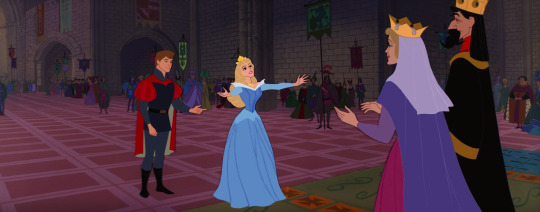
the duality of briar rose and princess aurora is so fascinating, but also the moments in which they overlap is more enchanting still. this is a fairytale that is meant to be archetypical, and aurora's enchanted slumber is meant to be symbolic for her transition from girlhood to womanhood. briar rose, the girl, is anxious about her future, the prospect of meeting her love and settling down and getting to the next stage of her life. she loves her guardians, but is frustrated at their inability to see and treat her as anything other than a child. she goes to sleep a scared, shy, unsure teenager and wakes up as a self-assured, mature, gracious woman- the princess aurora. she's a vision, descending the staircase on the arm of her beloved, and she paints quite the picture as she gracefully curtsies to her parents, the king and queen. yet, true to the girl from the cottage, briar rose takes over. unable to contain the love she feels, she bolts forward and rushes to embraced her lost parents. i love this because, for as calm as a character as aurora is, i've always been so mesmerized by the breathless excitement with which she speaks when she returns to the cottage. this is a girl that has more love inside her than she can contain and it renders her a beacon of light. her running into the arms of her parents, instead of resenting them for giving her up, putting her in an arranged marriage, or even pausing to question whether or not she should be so warm with these figureheads of state, is such a tender moment that i don't think i've ever heard anyone speak of.
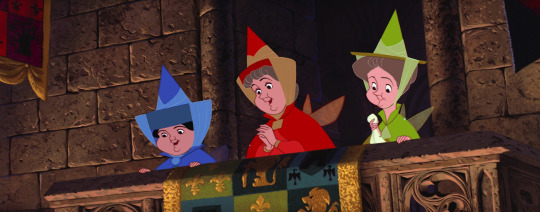
i will never get tired of singing the praises of the three good fairies. this film placed three older, conventionally unattractive women at the forefront- without pushing forced hetero ships on any of them- and allowed them to be bad ass (ie saving phillip from the dungeon, providing him with the tools and guidance with which to defeat maleficent, coming up with all the plots and actions that propelled the plot forward), while reminding us that love and kindness is truly the most powerful force on earth and placing an emphasis on the strength and power of femininity. the entire transition, from them being business women in the kingdom essentially (this is more in modern jargon; them being the fairies who are invited to political organizations for their contributions and not knowing anything about things like cooking or cleaning or rearing a child) to learning how to raise a baby and the film ending with them beaming over the shining achievement of their assigned charge finally being safe and happy is...it's everything. how beautifully the film focuses on them and the relationship with their adopted daughter and how that's the driving goal in all of this is something that's been unable to ever be surpassed
666 notes
·
View notes
Text
take me to art museums and make out with me
1M notes
·
View notes
